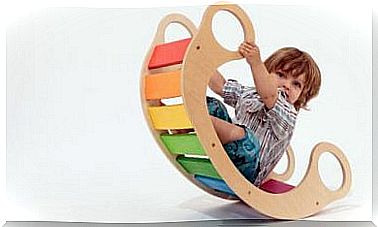How To Work Merit With Children

Feeling worthy of all that is good is essential in order not to fall into self-sabotaging behaviors in the future. By sabotaging ourselves, we inadvertently prevent ourselves from reaching our goals and achieving happiness. However, deserving is an attitude that develops from childhood, therefore, it is important to work actively with children.
From the way in which children are treated by their environment, they develop a positive or negative image of themselves. Parents, being the main attachment and authority figures for children, have the important mission of transmitting to their children that they are valuable, loved and that they have come to this life to be happy.
Deserving greatly conditions children in multiple ways. And it is a trend that will accompany them into adulthood. For this reason, it is so important to put effort into this task when we are educating a child.
How does the feeling of worth manifest itself?
It is very likely that until today you have never heard of the concept of deserving. However, it is easy to check where your child is on this issue, since the characteristics of a child who feels worthy are significantly different from another who does not.

The absence of merit manifests itself in:
- The child is often insecure and tends to experience fear or distress frequently. Faced with different everyday situations, you may be afraid of what the outcome will be like.
- He is not able to realize the personal resources that he possesses and, therefore, he does not use them properly. The child may not be aware of his virtues, abilities and strengths. Therefore, in the face of any challenge, you may feel unable to face it.
- The minor has a negative attitude towards life. You don’t value what you have, you don’t appreciate it, or you feel lucky. On the contrary, they tend to complain or be envious of others. Furthermore, he will usually feel that the blame for his unhappiness lies with others and that he cannot do anything about it.
On the contrary, a child who feels worthy will manifest it in the following ways:
- Often, you will experience feelings of calm, happiness, and security.
- You will recognize your qualities and abilities, and will know how to put them into practice when necessary. You will not be afraid of challenges because you will know that you have good personal tools.
- You will appreciate and value the life you have, and maintain a positive attitude towards your surroundings.
How to work merit in children?
Work on you
First of all, it is necessary that you review your own feeling of worthiness and work on it, if necessary, because you will not be able to transmit to your child any value that you do not have and apply first. Small actions like appreciating the compliments you receive instead of dismissing them can make all the difference.
Existing is enough
Deserving does not imply having to push yourself, work hard, or be a certain way to deserve happiness. This is unconditional. Try to emphasize to your child, whenever you can, that he has the right to be happy, to enjoy good friends, to receive the love of those around him, simply by being himself. We all deserve to be happy, without exception.

Build your self-esteem
It is important that you help your child to always keep all his qualities in mind, as this will make him feel safe and confident. Thus, encourage him to assume responsibilities according to his age, allow him to make decisions. Set challenges that are affordable to him because, as he successfully surpasses them, he will build an image of himself as someone capable.
Teach him not to settle
Finally, take advantage of every situation that arises to remind your child that he deserves the best and, therefore, he does not have to settle for less. If a friend treats you badly, encourage them not to accept that treatment. When he fails a test, encourage him to develop better study skills for next time. If he does not make a team, suggest that he practice and improve his ability to appear again for tests.
On merit and children
Ultimately, it is important that your child grows up feeling that he has the power to change his own life, that he is not just a victim of his circumstances. You deserve to be happy and you have the capabilities to do it.










